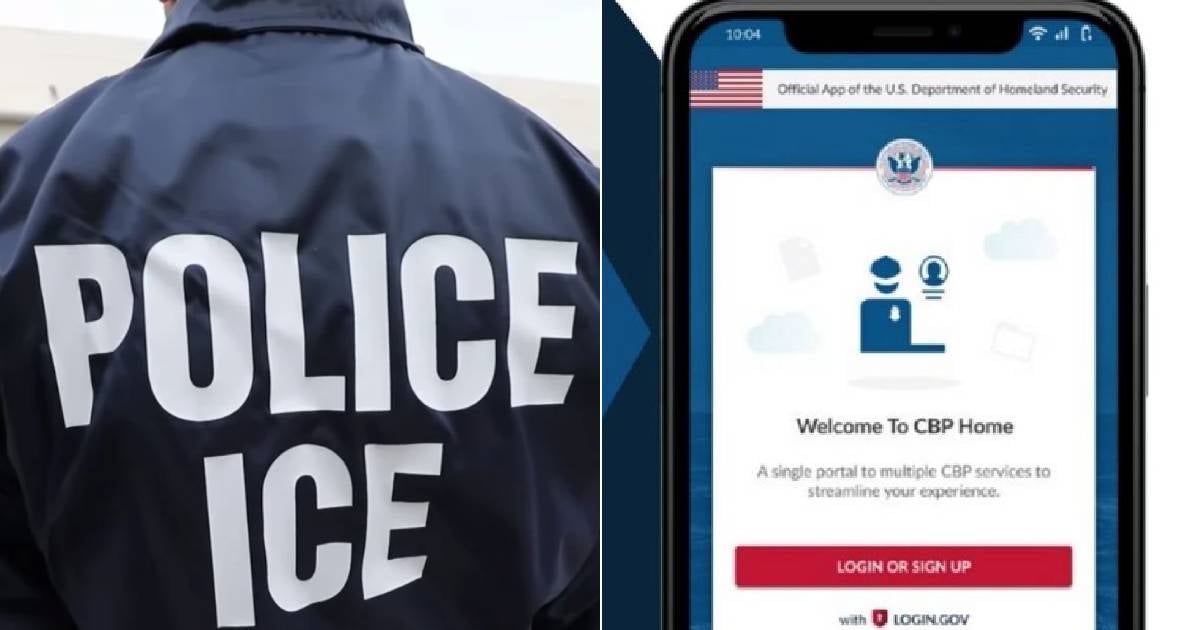The United States government, led by President Donald Trump, issued a fresh warning this Wednesday to undocumented immigrants, stating that those who do not voluntarily leave the country will face capture, deportation, and penalties. "If you are in the U.S. illegally, now is your chance to leave voluntarily. Use the CBP Home app to self-deport on your own terms. If you wait, you will be captured, deported, and barred from returning," the Customs and Border Protection (CBP) agency announced on their official page on the social media platform X.
This warning aligns with recent alerts from federal agencies, as part of a broader immigration crackdown involving fines, legal proceedings, cancellation of permits, and asset seizure. For voluntary departure, the use of the CBP Home app is recommended.
Daily Fines and Potential Property Confiscation
According to internal documents obtained by Reuters, the Trump administration is planning to enforce fines of up to $998 daily on immigrants with final deportation orders who do not exit the U.S. Additionally, property confiscation is being considered for those who fail to pay these fines.
These measures are based on a 1996 law, first put into practice in 2018, and now intended to be applied retroactively for up to five years. This could result in debts exceeding a million dollars for some immigrants. The Department of Justice's civil asset forfeiture unit could be used to legitimize the seizure of properties from undocumented migrants.
Permits Revoked for Migrants Entering via CBP One
Migrants who legally entered the U.S. using the CBP One app—a critical tool in the previous administration's immigration strategy—are receiving official notifications from the Department of Homeland Security (DHS) about the cancellation of their stay permits (paroles).
"It is time for you to leave the United States," states the email from the DHS, as reported by outlets like The Associated Press and journalist Daniel Benítez from Univision. "If you do not leave immediately, you will be subject to law enforcement actions, deportation, and a permanent ban on reentry."
The documents reference Title 8 of the U.S. Code, warning that any associated benefits, such as work permits, will also be revoked.
IRS to Collaborate with ICE to Identify Migrants
On another front, the Associated Press reported that the Internal Revenue Service (IRS) will begin sharing tax information with Immigration and Customs Enforcement (ICE) as part of a new inter-agency collaboration plan.
The agreement was formalized on Monday with a memorandum signed by Treasury Secretary Scott Bessent and Homeland Security Secretary Kristi Noem, enabling ICE to cross-reference tax data with immigration records to locate undocumented immigrants.
End of Humanitarian Parole and TPS
The DHS also announced the termination of the humanitarian parole program, a legal route that facilitated the air entry of 532,000 individuals from Cuba, Haiti, Nicaragua, and Venezuela, supported by financial sponsors. This program is set to expire on April 24.
Additionally, the Trump administration has revoked Temporary Protected Status (TPS) for 600,000 Venezuelans and 500,000 Haitians, although this action has been temporarily halted by a court order.
These initiatives are part of a radical tightening of immigration policies, not only aiming to curb illegal entry but also dismantling legal mechanisms used under the previous administration. The focus now is on thousands of migrants—many of them Cuban—facing imminent expulsion, criminalization, and economic hardship if they do not leave the country.
Key Questions on U.S. Immigration Policy
What is the CBP Home app?
The CBP Home app is a tool recommended by U.S. Customs and Border Protection for undocumented immigrants to voluntarily arrange their departure from the United States.
What are the consequences of not leaving the U.S. voluntarily?
Immigrants who do not voluntarily leave may face capture, deportation, fines, and a permanent ban from returning to the United States.
How does the IRS-ICE collaboration affect undocumented immigrants?
The collaboration allows ICE to use IRS tax data to help locate undocumented immigrants, enhancing enforcement actions.
